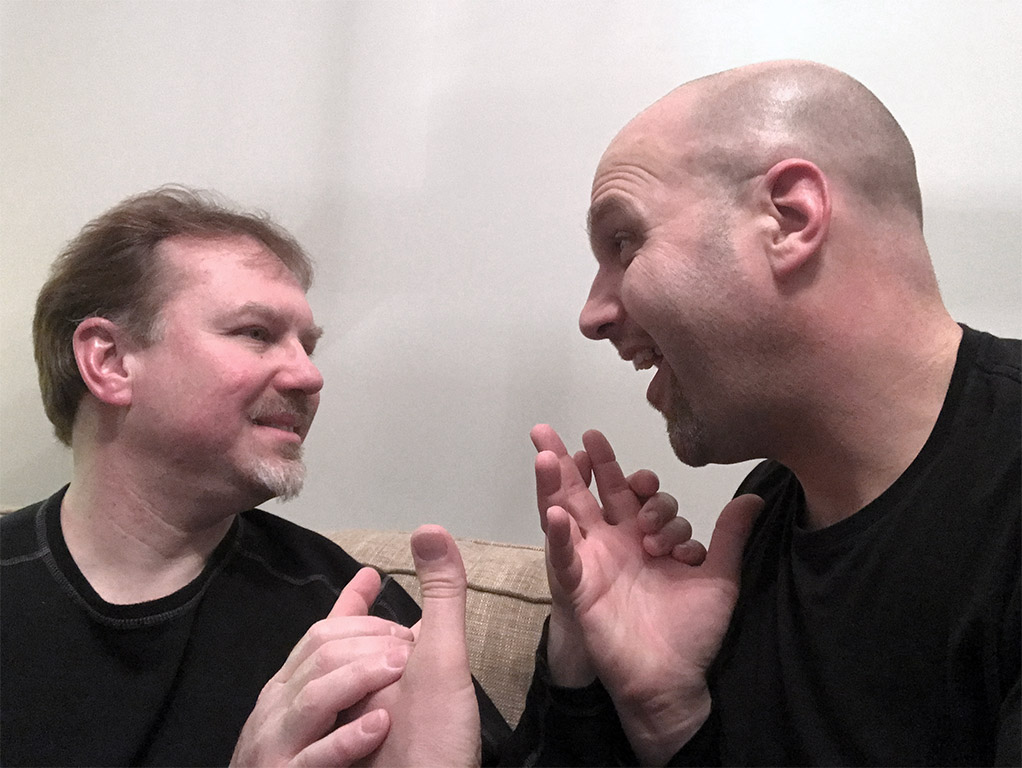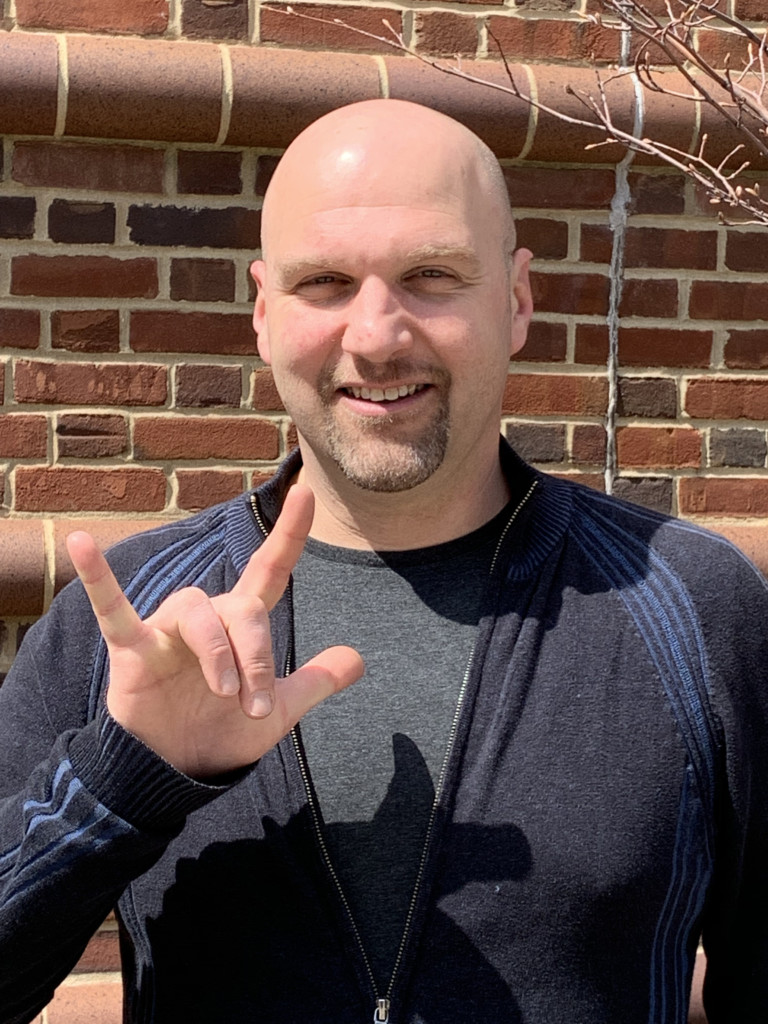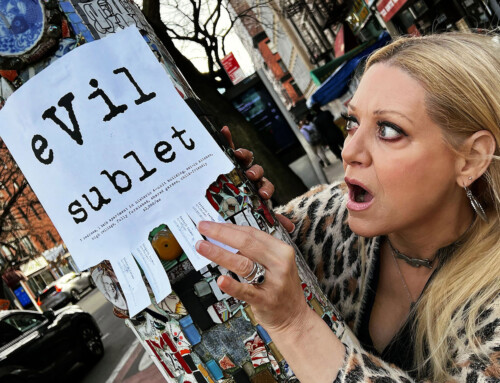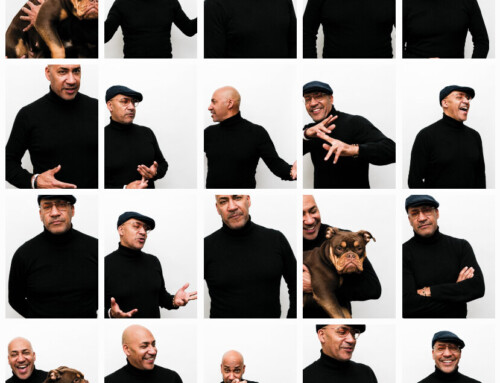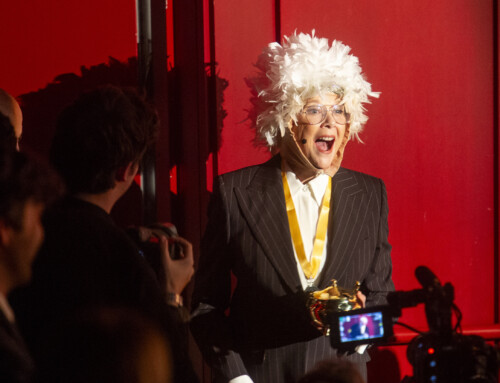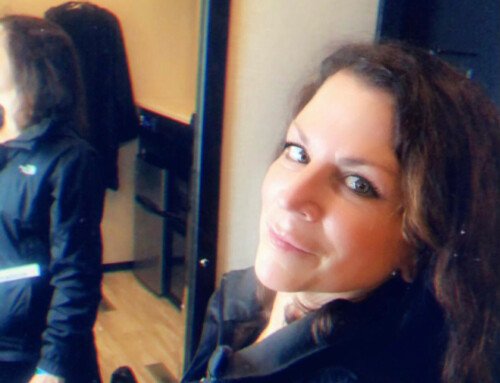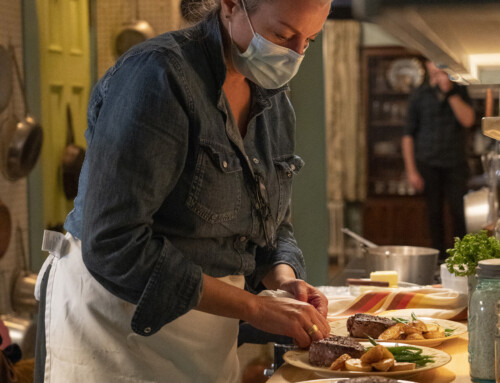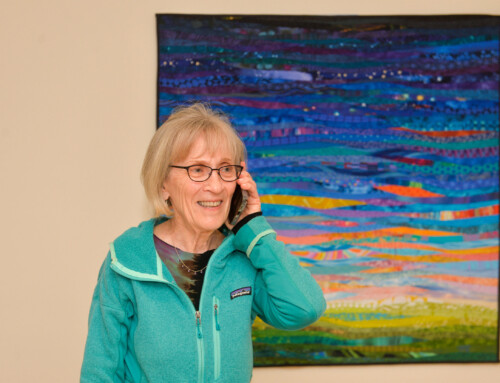Why the Bay State is one of the best places to live for the LGBTQ deaf and blind
Massachusetts, as professional interpreter for the deaf and deaf/blind Allen Reposh has found, is one of the best places for the LBGTQ people with vision and hearing impairments to live. Here, Reposh (right) is pursuing his passion and sharing his life with his partner, Jason (left), who is both deaf and sight impaired. The area’s vibrant deaf and deaf/blind community, so accepting of LGBTQ people, was what sealed the deal. It was also in New England that American Sign Language was born, something both men took as a good omen.
Boston Spirit’s Nina Livingstone sat down with Reposh to get a sense of what it’s like to be a member of the deaf/blind community and LGBTQ in Massachusetts.
LIVINGSTONE: As a gay man, are you out in the workplace?
REPOSH: I have been very fortunate to be out 100 percent. The deaf community, within itself, has a lot of LBGTQ members and more often than not, I witness heterosexual deaf members in acceptance of homosexual deaf members, instead of further marginalizing and horizontally oppressing each other. Both the deaf community and LBGTQ community are in the midst of similar social justice movements.
LIVINGSTONE: What brought you to Massachusetts?
REPOSH: I was born and raised in Elizabeth, New Jersey, about 20 minutes outside of New York City. I moved to Massachusetts to [find] the optimal place to live with my partner, Jason Wells, who himself is a deaf/blind person. Massachusetts has stellar social and disability services available. It also has a vibrant deaf and deaf/blind community, which is excellent for Jason as a community member, and equally excellent for my interpreting and SSP careers to continue thriving.
Historically speaking, ASL’s foundations started in New England. ASL is a hybrid language that developed out of the coupling of French Sign Language and the signed language that arose from isolated deaf people living on Martha’s Vineyard during the 1800s. Both French Sign Language and Martha’s Vineyard Sign Language were introduced to The American School for the Deaf in Hartford, Conn., the first school established for the deaf in the U.S.A.
LIVINGSTONE: What inspired you to learn ASL? Were you parents supportive of this choice?
REPOSH: There are no deaf people in my family. My interest in ASL started at the age of 5 with my first exposure through “Sesame Street,” when in the 1970s, a deaf actress named Linda Bove would appear. I would follow and copy her signed lessons of ABC’s, 1-2-3’s and basic signs. I perceived Linda as this magical being who had this special power of being able to speak with her hands and without moving her mouth.
Growing up, my mom noticed my strong interest in sign language and fostered my education by purchasing ASL books and dictionaries. I loved this beautiful, physical, visual and totally unique way of being able to communicate. My dad taught me the story of Helen Keller. In 1986, when I was 15, the movie “Children of a Lesser God” was released starring Oscar-winning deaf actress, Marlee Matlin and William Hurt. For obvious reasons, I adored this movie. When I was 24 years old, I attended a college interpreter training program and was extremely fortunate to have been taught ASL by a very special deaf man named Alan Barwiolek, “AL-B” for short. AL-B was a gifted deaf artist specializing in theater. In addition to being my deaf “father,” AL-B was also my very first gay role model. As small worlds would have it, AL-B was good friends and studied theater arts with Linda Bove! AL-B was also the ASL instructor who prepared William Hurt for his role in “Children of a Lesser God.”
LIVINGSTONE: Describe a challenge and a highlight in your career.
REPOSH: The most challenging part of interpreting is hearing or seeing a message and finding its spoken or signed equivalency, not allowing my own biases or opinions to filter out or add to the intent of the message.
Major highlights: interpreting for the performer Prince, Dr. Temple Grandin, the animal scientist, and Bernie Sanders the politician.
LIVINGSTONE: Do you ever worry about arthritis over the years of daily sign language interpreting?
REPOSH: I do concern myself about arthritis in my hands and/or carpel tunnel syndrome due to overuse and repetitive movements. The way I combat this is by taking appropriate breaks when needed, working with an interpreting team when the situation calls for it, frequent hand massages and stretching my hand muscles before and after interpreting work.
LIVINGSTONE: If there’s anything else you’d like to tell us?
REPOSH: Something that I would like for you to know about me is the unique relationship that I have with my mom, Stephanie. It turns out that two years after my dad passed away due to lung cancer, when he was 49 years old, my mom came out of the closet. My mom is living her authentic life with her wife (and my stepmom), Hope, in Florida. I had the special experience of assisting my mom with coming out to our family and her friends. It’s as though our roles in each other’s lives reversed where I became a parental figure for Mom during her blossoming young identity as a member of the LBGTQ community. I cherish our extraordinary bond.
This was originally published in the July/August 2019 issue of Boston Spirit magazine, which can be found at: Club Café , 209 Columbus Ave., South End Boston; and Cathedral Station, 1222 Washington St., Boston.
Nina Livingstone is a Boston-based writer who has written for Edible Boston, Jewish Boston, among other publications. For more information, visit her website, Destination Mirth or contact her at nina@ninalivingstone.com


